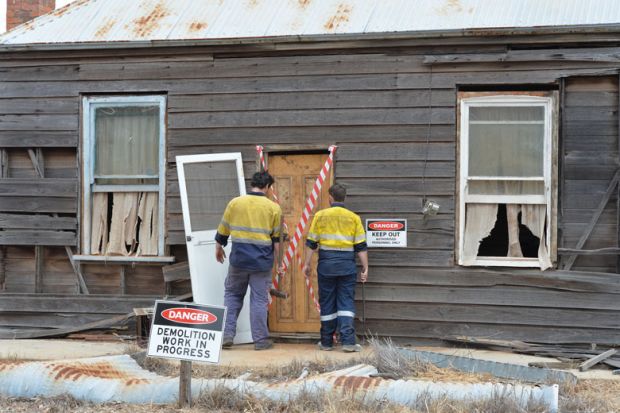Australia’s government should wind back the competitive research funding system to avoid the massive opportunity cost of unsuccessful grant applications, a policy expert says.
Andrew Norton, professor in the practice of higher education policy at the Australian National University, said the competitive funding system had fulfilled its purpose and no longer warranted the “huge amount of wasted time” it entailed.
“It’s not like it was in the 1980s, when governments suspected that academics were slack on the research side and wanted a process to improve its quality,” he said. “The culture has changed totally since then. Universities have strong incentives, via the rankings and other things, to maximise their performance. Is the ARC [Australian Research Council] constructively contributing to research in Australia? That’s the question we really need to ask.”
Academics say they typically spend a month each year submitting funding applications to the ARC, which rejects about 80 per cent of them. “That’s not counting the time of all the assessors who look at these grant proposals,” Professor Norton said.
“To me, the big benefit in getting an ARC grant is high status. That’s not necessarily an economically efficient way of funding the research system.”
An alternative approach would see funding for research projects distributed to universities through a mechanism like the research block grant (RBG) framework, which helps to pay for PhD stipends and overheads such as laboratories, assistants and consumables.
Professor Norton said this would overcome a structural weakness of Australia’s competitive grants, which do not cover the full costs of research – forcing universities to supplement every research grant through unreliable funding sources such as international students’ tuition fees. Under a block grant approach, universities would have discretion over how research money was spent.
He acknowledged that a mechanism would be required to ensure that research funding went to the most meritorious proposals, to allow new pockets of research excellence to “evolve”. But he questioned whether that had happened under the competitive approach. “The grant system’s been around for 30 years, and the Group of Eight are the dominant researchers now – just as they were in the late 1980s.”
Political economist Damien Cahill said the idea was worth considering. “Most academics dread the time of year when they have to apply for ARC grants,” said Dr Cahill, New South Wales state secretary of the National Tertiary Education Union. “It’s considered by many to be such a wasted effort.”
But he said any funding reform should be “tied to employment outcomes” to boost researchers’ job security.
Former University of Melbourne deputy vice-chancellor Frank Larkins said the idea of abandoning competitive research funding was “never going to fly”, with both major political parties “clearly wedded” to a competitive approach. “The government wants assurance that it’s funding the very best projects in Australia, across a range of priority areas,” he said.
Professor Larkins said an alternative proposal would see ARC applications capped at double universities’ success rates. For example, institutions that had attracted an average of 100 grants over the previous three years could submit up to 200 applications. This would force universities to prioritise their research while lifting ARC success rates to about 50 per cent.
But such an idea risked further cuts to research funding. “The government has got used to funding only 20 or 25 per cent of projects,” Professor Larkins acknowledged.
Register to continue
Why register?
- Registration is free and only takes a moment
- Once registered, you can read 3 articles a month
- Sign up for our newsletter
Subscribe
Or subscribe for unlimited access to:
- Unlimited access to news, views, insights & reviews
- Digital editions
- Digital access to THE’s university and college rankings analysis
Already registered or a current subscriber? Login










